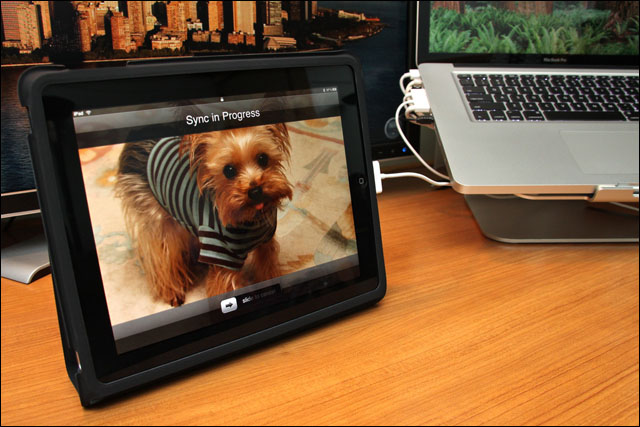The chief executive of South Australia’s health department issued a sternly worded letter to all staff in late May warning them off corporate purchases of Apple’s flagship iPad device until the department’s IT team could properly assess the device.
The letter — under the name of SA Health CEO Tony Sherbon — states that SA Health is issuing a moratorium on the purchase of iPads for an initial period of two months.
Sherbon told staff that while the potential use of the iPad within SA Health might be significant, the department needed to fully assess the device before it was implemented — with concerns around the security of patient information being one potential issue.
A spokesperson for SA Health confirmed the letter, and said that “as with all new technology”, the department needed to assess the iPad and make sure it was compatible with its other IT systems. “Once the assessment’s complete, we can look to release the technology carefully into the system,” they said.
SA Health’s review of the iPad has not yet been completed. But Sherbon did note in his letter that exemptions were available to the iPad moratorium if a legitimate business driver existed.
The spokesperson said no one specific event had sparked Sherbon’s warning, but they noted that obviously the department wouldn’t issue a department-wide email if there wasn’t interest in the platform.
The news comes as IT managers and chief information officers at many large Australian organisations have demonstrated a great deal of interest in corporate adoption of the iPad — especially in certain specialised sectors such as health and education.
In mid-June a quick straw poll of half a dozen Australian chief information officers who use the Twitter social networking platform showed that most had bought an iPad for personal use, or were planning to.
And Victorian Premier John Brumby in late May announced his state would buy more than 500 of the Apple tablets, to be distributed to eight Victorian schools in a trial of the technology.
Image credit: Yutaka Tsutano, Creative Commons


The cautious approach on the part of the Health Department makes sense because wholesale adoption of any new technologies without proper assessment has the potential to cause serious security issues and to pose problems for IT departments that are ill equipped to support the devices. Such devices need to be assessed for their proper role and a supported set of specific applications needs to be determined to ensure the success of such product introductions.
The potential for ipads to be used in both health and education is massive. The Victorian Government trial is also including the provision of ipads to hospital patients. Aside from the medical uses of an ipad, imagine the difference in quality of life an ipad could make to those who are very sick.
As a South Australian, i am please to hear that the SA government has ipads on their radar and is investigating the potential uses.
News just in:
Doctors in Japan use iPhone and iPad for health care and fitness applications
> Health care and fitness applications for sophisticated mobile devices like iPhone and iPad are booming in Japan. Jikei University Hospital has launched an iPhone application designed to assist diagnosing stroke symptoms in patients and is partnering with Fujifilm to develop a system for other hospitals to use the application.
http://www.fareastgizmos.com/ipad_1/doctors_in_japan_use_iphone_and_ipad_for_health_care_and_fitness_applications.php
Microsoft zealots everywhere are using security as an excuse to slow down iPad deployment until Microsoft releases their “pads” (which will be too little too late in February or March!). Security is clearly a non issue as the device is literally immune to 99.99% of Windows viruses whilst it is also a “closed garden”, unlike Windows which is wide open to abuse.
We will see a lot more desperate acts on the part of people who have built Windows based fiefdoms as they try to defend them from perhaps 20 million iPads by Christmas.
Comments are closed.